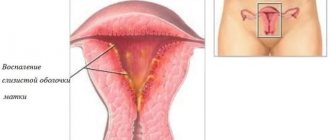At all times, women (and not only them) have been interested in the issue of protection from unwanted pregnancy. Folk contraceptives were known back in ancient Egypt. Egyptian women mixed mashed acacia shoots with honey and dates. Then this mixture was inserted into the vagina. The effect of this method was based on the fact that acid was formed from the acacia plant glue, which reduced the activity of sperm. There were folk contraceptives with abortifacient properties, and they still exist today.
Traditional contraceptives are still popular today. Some gynecologists include coitus interruptus and the calendar method (it is impossible to get pregnant 5 days before and 5 days after your period).
The simplest folk method is douching with an acidic solution immediately after sexual intercourse. Add a little vinegar (2 tablespoons per 1 liter of water) or citric acid (2-5 grams per 1 liter) to the solution. Some women insert lemon slices or aspirin into the vagina. All these methods are aimed at increasing the acidity of the vagina. In a too acidic environment, sperm lose moisture, lose their ability to conceive and die.
It is said that the presence of 30% peas in the diet leads to a contraceptive effect.
There is also a rumor that you should eat canned corn after sexual intercourse and you will not get pregnant.
Abortifacients
These are drugs that cause contractions of the uterus, and as a result, spontaneous rejection of the fetus.
These include plants that have an abortifacient effect; their use will lead to spontaneous miscarriage of the fetus in the early stages.
Recipes
Watercress plant
rinse in water, scald with boiling water, chop, squeeze out the juice through a canvas cloth, dilute with water 1:2 and boil for 1-2 minutes. Take 1 tablespoon 3-4 times a day.
Pour 1 tablespoon of dry crushed club moss
500 ml of water, cook over low heat for 5 minutes, leave for 2 hours in a tightly sealed container, strain. Take 1 tablespoon 3 times a day before meals. Or leave 2 teaspoons of dry crushed herbs in 2 glasses of cold boiled water for 5 hours, strain. Take 1/4 cup 3-4 times a day.
Ground clove seeds
or a tincture of them (1 teaspoon per 1 glass of water) is also used as an abortifacient. Or take 15 g of chopped herbs, leave for 1 hour in 1 glass of boiling water, strain. Take 1 tablespoon 3 times a day before meals.
In Tibetan medicine, the roots of Gentian triflorum
used as a decoction (1:10) orally, 1/3 cup 2-3 times a day as an abortifacient.
Take 1 teaspoon of wild rosemary
for 200 ml of boiling water. Leave for 2 hours, cool, strain. Take 2 tablespoons 3-4 times a day.
The disadvantage of all folk remedies is their unreliability. Therefore, it is better to resort to them only in extremely rare cases. For example, if modern methods of contraception are contraindicated for any reason. And, of course, it is better to consult a doctor before using them.
Especially for Lucky-Girl
- Margot Shevchenko
The issue of protection from unwanted pregnancy has been relevant for women in all centuries. Today, the pharmacological industry produces many different contraceptive drugs and products. However, they often have contraindications and often cause negative effects. Many women have to look for alternative methods.
Let's look today at what contraceptives are available in traditional medicine. And there are a lot of them! Perhaps some women will take them on board and use such recipes in the right situation.
If you think that by purchasing a contraceptive pill at the pharmacy and swallowing it, you can safely have sex and not worry about your future health - you are mistaken! Academician N.V. Levashov talks about the consequences of such a popular “easy” method of contraception.
That's why traditional methods of contraception remain popular today.
1. Coriander has been used for a long time. You will need plant seeds. Prepare an infusion. For 800 milliliters of boiling water, take 40 grams of crushed raw materials. Pour it in and leave it in a warm place for at least 10 minutes. Take the infusion regularly after meals, 150-200 milliliters.
2. Our grandmothers drank a decoction of rowan against unwanted pregnancy. To do this, they took the blooming caps of flowers, crushed them and poured 250 milliliters of boiling water into 1 tablespoon. Then the composition was placed in a steam bath and boiled for 20 minutes. After this, the broth was allowed to brew for another 45 minutes. We drank the decoction regularly three times a day, 20 minutes before meals, 300 milliliters. The berries of the plant can also be used for the same purpose. They should also be crushed and take a similar amount. Next, the composition must be placed on low heat and boiled. Accept - the same.
3. Such a “contraceptive” herb as sparrow has long been known. Its leaves, seeds and roots are prepared and made into decoctions. For 15 g of crushed raw materials, take 180 ml of boiling water. Boil in a bathhouse under a closed lid for at least 30 minutes. Then leave for another 45 minutes. Boiling water is added to the strained broth, replenishing the evaporated volume. Take the potion 50 ml three times a day.
4. Temporarily “sterilizes” the woman and such a remedy. Take 10 g of Roman cumin (cumin) and ficus (fig) seeds. Fill them with 100 ml of water, stir and drink. The potion is taken after the end of the last menstruation.
5. To avoid getting pregnant, you can use viburnum bark. 1 tablespoon of crushed raw materials is poured into a glass of water, boiled over low heat to half the volume of liquid. Take 1 tablespoon of the decoction in the morning and evening before dinner.
6. In order to protect against pregnancy, ancient healers recommended eating peas. Long-term pea “therapy” gives a stable contraceptive effect.
Traditional contraceptives after intercourse
Other effective folk remedies
There is such a folk remedy with a contraceptive effect. You need to grind date palm fruits and young acacia shoots in a meat grinder 1:1. Honey must be added to the mushy mass. Next, this mixture should be wrapped in gauze and made a tampon, which is placed in the vagina. The lactic acid released from these ingredients inhibits and therefore prevents pregnancy.
There is a very effective remedy for pregnancy, which has been used by women in the East for a long time. They take equally crushed leaves: licorice and cordifolia roots, pistachio and prickly argan fruits. Fresh honey, milk and butter are added to the mixture. This “pregnancy medicine” is taken orally with water. The contraceptive dose is: 15 g per day.
One famous American sexologist recommends douching the vagina with Coca-Cola. The contraceptive effect of this drink is based on the fact that carbon dioxide and sugar destroy sperm motility. Before using Coca-Cola, it is recommended to shake the bottle well.
In Thailand, women effectively use lemons to prevent pregnancy. To do this, take a small slice of this fruit, peel it from seeds and peel and insert it into the vagina. Lemon should be removed no earlier than 4 hours after intercourse.
Married couples often use such a folk contraceptive as coitus interruptus. Its essence: literally a couple of seconds before ejaculation, the penis is removed from the vagina. Sperm does not enter the uterus and does not give a chance for conception.
To prevent pregnancy, a manganese solution can be used as an effective contraceptive. To do this, potassium permanganate is diluted with water to 0.1%. Potassium permanganate is a strong oxidizing agent, which prevents fertilization.
When using folk remedies to prevent unwanted pregnancy, you need to remember that they do not provide a 100% guarantee. And frequent douching with various solutions can cause, which will lead to inflammatory diseases of the female sphere.
It should also be remembered that traditional contraceptives do not protect. Therefore, it is best to discuss the choice of contraception method with a knowledgeable specialist - a gynecologist.
Folk remedies and medications
Emergency contraception is a set of methods that are used after unprotected intimacy. They are aimed at suppressing ovulation so that the egg does not meet the sperm, or at preventing an existing fertilized egg from attaching to the walls of the uterus.
Some means of emergency contraception are approved by official medicine, but all of them are considered harmful to a woman’s body, so they should only be used as a last resort.
Emergency contraception using hormonal pills
using hormonal drugs is effective . They contain hormones that have a suppressive effect on the maturation of the egg, inhibit the penetration of the fertilized egg into the uterus, and reject it from the uterus, disrupting the implantation process.
Hormonal pills work in different ways. They cannot be used constantly; these are emergency contraceptive drugs.
If there is a risk of becoming pregnant after sexual intercourse, it is important to take the pills immediately after it. Their effectiveness in the first hours of administration is 94% , by the end of the third day the probability of protection is only 57% . When resorting to emergency contraception using pills, you need to take into account the rules of administration and possible contraindications.
When using hormonal medications at home, you need to know that there are medication options:
- Only 1 tablet is needed to protect against possible pregnancy;
- The drug is required to be taken according to the regimen for 3 days, up to 6 tablets.
The choice of emergency contraceptive measures depends on the length of time after the act.
All contraceptive pills after an act that may have consequences must be taken strictly according to the instructions, taking into account the individual characteristics of the body and possible complications.
Taking a hormonal contraceptive during the day
There are medications that will provide reliable protection if taken immediately after intimacy or within twelve hours after it. List of names of such drugs:
- Ovidon – 2 tablets;
- Non-Ovlon – 2 tablets;
- Ministison – 3 tablets;
- Rigevidon – 3 tablets;
- Marvelon – 4 tablets.
Reliably protect tablets that contain an artificial analogue of progesterone - levonorgestrel. These are the drugs Eskinor F, Escapelle, Postinor. The action of these drugs is based on a decrease in the activity of the egg after ovulation and a decrease in the speed of movement of the fallopian tubes.
The egg dies under the influence of these hormonal contraceptives before reaching the uterine cavity. Even if the egg has penetrated the uterus, the mucous membrane is rejected and it is not able to implant.
Protection after the act for 72 hours
This group includes combined oral medications that contain a high concentration of hormones (estrogen, gestagen). They should be used according to the schedule in a certain dosage. They cause the endometrium to slough and cause bleeding.
| Mini-pill | Microdosed progestin tablets. The dose of the hormone in them is 6 times less than in COCs. Taken every day at the same time of day for six months or more. There are no breaks in taking. |
| Vaginal hormonal ring | A topical contraceptive made from hypoallergenic material. Inserted into the vagina at the beginning of the menstrual cycle, it is effective for 21 days. Contains a minimal dose of estrogen and does not affect the liver or gastrointestinal tract. |
| Contraceptive patch | A microdosed contraceptive for transdermal use, applied to dry, clean skin in the abdomen, buttocks or torso. The effect of the patch lasts for 3 weeks, after which you need to take a week break and apply a new one. |
| Injectable contraceptives | Hormonal drugs with a high level of gestagen, administered intramuscularly using a syringe. The contraceptive effect of one injection lasts for 3 months. The product is used without interruption. |
| Subcutaneous implants | Gestagen-containing silicone capsules injected subcutaneously from the outside of the forearm. They protect against unwanted pregnancy for 5 years; they can be removed ahead of schedule to interrupt the contraceptive effect. |
| Postcoital contraception | Drugs to prevent conception after unprotected sex, the duration of use of which varies from 72 to 120 hours. Preparations based on gestagen or antigestagenic substances. Not used on an ongoing basis. |
| List of drugs | First appointment | Additionally |
| Postinor | 2 tablets within 12 hours | 2 doses every 12 hours |
| Gynepristone | 1 time within 72 hours | |
| Ovidon | 2 tablets no later than 3 days | 2 doses every 12 hours |
Situations when emergency contraception is needed
There are several points that require taking contraception:
- unprotected sexual intercourse;
- interrupted sexual intercourse;
- rape;
- prolapse of the intrauterine device;
- incomplete dissolution of spermicidal preparations;
- erroneous calculation of unfavorable days for conception;
- failure to use or misuse a condom;
- a woman missing two or more oral contraceptive pills;
- untimely use of long-acting contraceptives (injections, patches, rings).
Any method of contraception, except sterilization, does not provide one hundred percent protection against conception. Moreover, there are times when conventional contraceptives were not used at all during sexual intercourse or were used incorrectly.
If a woman does not plan to become a mother, then in cases of unprotected intimacy, one of the methods of emergency contraception should be used.
Which method of contraception is better: rating of contraceptives
Having become familiar with all the methods of modern contraception, you can make a kind of rating of the effectiveness and popularity of contraceptives and methods of contraception.
- 99.9% - sterilization. The method is not popular, it is used by women to maintain their health.
- 99% - intrauterine device. This method is in demand among married women who have children and do not want to bother with contraception.
- 98% are hormonal drugs. A popular method of contraception among young women who have a regular partner and frequent sexual intercourse.
- 95-98% are condoms. The most popular method of protection. It is used both by girls who change sexual partners and are promiscuous, and by older married women who have sex extremely rarely.
- 85% - vaginal contraceptives. These drugs are not popular because gels, vaginal tablets, suppositories and ointments have a limited duration of action, and diaphragms and vaginal caps are not always inserted correctly and in some cases can cause discomfort.
the calendar method in the rating, but note that it helps some women avoid getting pregnant 100% throughout their lives, while it fails others on their first attempts.
It has been proven that no method of contraception can give a 100% guarantee. Because having sex is always a risk of ending up pregnant. Humanity has been trying for centuries to invent an effective remedy for conception, but it is not so easy to deceive the natural structure. When choosing contraceptives, consult a gynecologist and enjoy sex without fear.
Methods
Such methods of emergency contraception are divided into folk remedies and taking hormonal or non-hormonal drugs. It must be remembered that all these methods do not protect against sexually transmitted diseases.
Some options are approved by official medicine, but experts warn: emergency methods of contraception should not become regular. They cannot be used more often than 2-3 times a year.
During lactation, the use of emergency contraception is possible, but it is better to breastfeed no earlier than six hours after the procedure, and it is better to wait a day.
Folk remedies
Many women are addicted to such methods, and doctors have to deal with the negative consequences of their use: bacterial infections, disruption of the vaginal microflora, strokes and surges in blood pressure.
In addition, traditional methods are absolutely useless, since they do not affect the fertilization process.
Traditional methods of emergency contraception include:
Non-hormonal drugs
Non-hormonal drugs for use after intercourse include drugs based on mifepristone.
Mifepristone
is a progestin antagonist, single-dose contraceptive pill. It suppresses the function of female sex hormones, affects the mucous membrane of the uterine walls, causes muscle contraction and does not allow the egg to attach. If implantation has occurred, the drug can cause rejection of the fertilized egg (microabortion).
Brand names of drugs containing mifepristone: Zhenale, Ginepristone, Agesta.
Hormonal drugs
The use of hormonal drugs as contraceptives after sexual intercourse is very popular: they contain synthetic analogues of female sex hormones that can prevent ovulation. Drugs with levonorgestrel (progestin) or combination drugs with levonorgestrel (progestin) and ethinyl estradiol (estrogen) are considered effective.
Well-known products with progestin have the trade names Escapelle and Postinor. Hormonal contraceptive pills must be taken within 72 hours after sexual intercourse - then their effectiveness decreases sharply. Application after 5 or more days has not been studied.
Postinor
– the most popular means of emergency contraception. The package contains two tablets containing 750 mcg of levonorgestrel. The maximum period during which they need to be taken is three days from the moment of unprotected sex, and the highest effectiveness (up to 94%) is achieved if you take two tablets per day with an interval of 12 hours.
A high dose of the active substance in Postinor causes great harm to a woman’s ovaries: it cannot be used more than twice a year.
Escapelle,
like Postinor, it contains levonorgestrel (1500 mcg) and acts similarly. The drug is sold in one tablet and taken once.
Combined contraceptives
with estrogen and progestin in the composition (Rigevidon, Microgynon, Novinet and others) are taken according to the Yuzpe method: the point is to get 200 mcg of ethinyl estradiol (estrogen) and 1.5 mg of levonorgestrel (progestin) per day. To do this, take 2-4 birth control pills during the day after sexual intercourse in two doses. More precise information can be found in the instructions attached to the drug.
The method is quite effective, but it can cause serious side effects (for example, severe nausea and vomiting), so it should only be used under medical supervision.
Emergency contraception for use after intercourse also includes an intrauterine device containing copper. It may contain hormones that can suppress ovulation and reduce sperm activity.
It prevents the fertilized egg from attaching to the walls of the uterus, and the copper in its composition negatively affects the sex cells of a man and a woman, preventing them from merging together. If the fertilized egg has already settled in the uterine cavity, the IUD becomes ineffective and can be dangerous.
The IUD must be inserted within five days (120 hours) after unprotected intimacy. This is not always possible, since before administration (which is carried out only by a doctor), you need to undergo a thorough examination. An intrauterine device is suitable for those who have already planned to have one, are undergoing examination and undergoing tests. In addition, this method has many contraindications.
During the period of sexual activity, a woman may experience unforeseen situations that require immediate resolution, but we must remember that emergency medications are a necessary measure that can undermine women’s health. It should not be used on a regular basis.
If you need emergency contraception, it is best to consult a doctor.
A good specialist will choose the method that suits best and help deal with unwanted consequences in a timely manner.
The active development of the pharmacological industry and scientific research has made it possible to create a whole range of protective agents. However, there are situations in which it is not possible to use them or they fail at the most crucial moment. And sometimes one of the partners is categorically against taking medications and using a condom.
Sometimes the use of contraceptives is impossible due to the individual characteristics of the female body. It is in this case that the experience of our grandmothers and great-grandmothers in this area will become useful.
Known since ancient times, means of protection against unwanted pregnancy can be divided into several groups:
- The use of decoctions and infusions of herbs and seeds;
- Use of special water procedures;
- Act interruption and cyclic method;
- Use of chemicals.
In addition, they are divided into methods that are used before the start of the act and immediately after it.
Each method has a certain effectiveness. However, if there are individual characteristics of the body, it may not bring the expected result. Folk contraception can also be useful in such cases of unsafe sexual intercourse:
- The condom broke;
- The birth control pill was taken at the wrong time;
- The process of the act was not interrupted before ejaculation;
- Due to the woman's health, taking birth control pills is not permissible.
Barrier method of contraception
We can say that this is the oldest method of contraception, protecting by 99%. The barrier method prevents the “dating” of the egg and sperm, and in addition protects against sexually transmitted diseases. Protection devices are available for both women and men.
Condoms - classics in sex
The most reliable way to prevent unwanted pregnancy and avoid sexually transmitted and infectious diseases. Disposable products are made from latex. They should be placed on the man's penis.
Using this method, a woman “takes a break” from worrying about how not to get pregnant.
And although many men do not like sex using a condom, remember, your health is more valuable than your partner’s momentary pleasures.
Condoms are an immediate means of contraception, a kind of safety net for girls who have more than one sexual partner.
Femidom - female condoms: what types and how to use?
Femidom - has the same protective capabilities as a condom. It is a tube made of elastic material that is inserted into the vagina. The size of such a tube is about 8 cm in diameter and 18 cm in length. There are rigid rings at both ends. The upper one is inserted into the vagina, and the lower one remains outside. After sexual intercourse, it is necessary to remove the femid. It is designed for one-time use and can remain in the vagina for up to 10 hours.
In addition to the female condom, femidom also has:
- diaphragms are a dome-shaped latex product with a diameter of 50 to 105 mm. At the base of the dome there is a metal spring, which, when inserted, closes the cervix, resting against the walls of the vagina;
- rubber caps - they are similar to a diaphragm, but a smaller version, do not have an outer ring. With its help, only the cervix closes. The caps vary in size, and only a gynecologist can determine your exact size.
These devices prevent pregnancy but do not protect against disease transmission.
The effectiveness of traditional methods for preventing pregnancy
Various folk methods of birth control have a certain effectiveness. It is worth remembering that none of them gives a 100% guarantee. In addition, no method protects against sexually transmitted diseases.
Effective folk methods
After weighing all the pros and cons, you can choose one of these methods:
- Douching with solutions of lemon juice or vinegar is up to 50% effective. It is worth noting that frequent exposure to acidic environments on a woman’s internal mucous membrane can lead to serious problems and disrupt healthy microflora.
- Inserting a piece of lemon into the vagina. This method of protection is based on the fact that sperm cannot live in an acidic environment. The effectiveness of this method is up to 70%. However, we should not forget about the high risk of getting a burn to the vaginal mucosa from exposure to an acidic environment.
- Sometimes, instead of lemon solution or vinegar, it is recommended to use a weak solution of potassium permanganate. However, this disinfectant liquid has no effect on sperm. The only way to prevent pregnancy is that a strong stream of water can wash them out of the vagina. But certain “individuals” can stay and get to the desired goal. The effectiveness of this method of protection is 40%.
- The effects of high temperature on male testicles. These are hot baths, heating pads and other devices whose purpose is to reduce sperm activity. The effectiveness of this method is about 70%.
- Many couples actively practice interrupted intercourse. In this case, the man leaves the woman before ejaculation begins. This method requires constant self-control from the partner and significantly reduces pleasure. However, it is highly efficient - up to 85%.
- Another widely used method of contraception is cyclic. It is believed that in the first 5 days after the end of menstruation and in the last 5 days before their onset, a woman cannot become pregnant. The method is effective, although it does not provide a 100% guarantee. There are cases when pregnancy occurs even during menstruation.
Immediately after giving birth, a woman begins her lactation period. There is a persistent myth that as long as the mother breastfeeds the child, pregnancy is impossible. The statement is not entirely true. In the first months, when the frequency of feedings is high, this method is quite effective (up to 95%). However, later, when the baby is introduced to complementary foods, it is not worth protecting against re-pregnancy in this way. It loses its effectiveness and can lead to a new conception.
Useless folk methods
There are many different ways that can supposedly prevent pregnancy.
However, according to scientific evidence, their effectiveness is either extremely low or even zero. Let's take a closer look at these methods:
- One of the “grandmother’s” secrets of protection against pregnancy is to wash away with your urine after the act. Scientific evidence of the effectiveness of this method has not been found. Probably, if it exists, it is extremely low.
- Among women you can find a very strange statement that frequent changes of positions during sex interfere with fertilization. And if the girl is on top of the man or the couple makes love while standing, then the sperm will not reach their goal and will simply end up outside. This statement is absolutely not true. Male “tadpoles” do not obey the laws of physics. They strive for the sole purpose of their existence, no matter what position the lady is in. The effectiveness of this method is practically zero.
- Another ineffective but popular protective method is daily lovemaking. It is believed that in this case the sperm quality will be low and the sperm will be less active. It is known that married couples who want a child are advised to abstain from sexual intercourse for 3 days. However, sperm activity does not depend on the last time intercourse took place. Even very diluted sperm can lead to pregnancy. The effectiveness of this method is low - up to 10%.
How to protect yourself using traditional methods
Traditional methods of contraception before sexual intercourse
Among all the existing methods of protection, there are those that must be used before sexual intercourse:
- Hot bath
. The influence of hot temperatures on partners helps protect against pregnancy. Only the man should take a very hot bath before sex, and the woman will need to do it after. It is believed that this contraceptive method was invented by the Japanese. It is based on the fact that under the influence of high temperatures, the activity of sperm is greatly reduced, and some die. Scientists have proven that in case of illness, which is accompanied by high temperature, sperm parameters differ from the norm for the worse. Therefore, taking a hot bath for 1 hour will help you and your partner avoid the consequences. After taking a bath, you can begin intimacy. - Lemon
. If you have a piece of lemon on hand, gently insert it into the vagina just before the act. An alkaline environment leads to the death of sperm. However, it is necessary to remove it immediately after intimacy in order to avoid the negative consequences of such contraception in the form of a burn to the vaginal mucosa. - Aspirin
. You can place an aspirin tablet inside the vagina before the act itself. The method is effective, but it is fraught with extremely unpleasant sensations and serious consequences for the intimate area. Aspirin can cause itching, irritation, burning, lead to a chemical burn of the mucous membrane, and provoke erosion. Of course, when there are no other ways to protect yourself, you can use this method. But you should understand the damage you will cause to your health.
Traditional methods of contraception after intimacy
It is known that male sperm cannot tolerate the effects of an acidic environment.
Therefore, it is recommended to douche after an unsafe act. This must be done in the first minutes so that the nimble tadpoles do not have time to reach their goal. The most popular folk remedies for preventing pregnancy after sexual intercourse are herbal infusions, which are taken orally, and various douches. Douching is carried out as follows:
- In one liter of warm boiled water, dilute 2 tbsp. l. lemon juice or vinegar.
- Immediately after completion of intimacy, you need to douche using a douche or an “Esmarch mug”.
- If you don't have vinegar or lemon on hand, can you use it? tsp citric acid. You just need to thoroughly mix the grains of the substance. Otherwise, they may get on the mucous membrane and cause a burn.
Another remedy for the consequences of sexual intercourse is douching with an infusion of yellow water lily. This plant is collected and dried. Then 2 tbsp. l. Dry water lilies must be filled with 1 liter of boiling water. Douching is recommended to be done immediately after intercourse.
What types of non-hormonal contraceptives are there for women?
All non-hormonal means of protection against unwanted pregnancy are divided into barrier and chemical. The former include female condoms, uterine caps, and the vaginal diaphragm. All spermicides are considered chemical contraceptives.
Barrier and chemical agents can be combined with each other. For example, the use of spermicidal gel and a vaginal diaphragm increases the effectiveness of protection.
Using a diaphragm and spermicidal gel together reduces the chance of pregnancy
Female condoms
They are a long elongated tube made of polyurethane (hypoallergenic material) with two rings, one end of which is sealed. The female condom is inserted into the vagina so that one of the rings remains outside and the second is inside. A protected space is created in the vagina: during ejaculation, the male seminal fluid remains in the condom and does not enter the cervix.
The female condom protects the cervix from sperm
Video: program on using female condoms
Spermicidal agents
Spermicides are classified as chemical contraception. They are inserted into a woman's vagina 15–30 minutes before sexual intercourse. The product dissolves, resulting in an environment created in the vagina that causes the death of sperm. The basis of most of these drugs is benzalkonium chloride. Spermicides can be produced in the form of:
- films;
- gel or cream;
- candles;
- vaginal tablets;
- sponge
Spermicides cannot be used together with detergents by both partners, as indicated in the instructions. One of my friends decided to use non-hormonal suppositories as a method of preventing unwanted pregnancy. An hour before sexual intercourse, the girl did not use shower gels or soap, but forgot to warn her partner about this. The man treated his penis with a soapy intimate hygiene product, which he did not tell his girlfriend. As a result, the contraceptive effect of spermicides was minimized, and a few weeks later the girl found out about an unplanned pregnancy. To avoid such consequences, you need to approach the choice of means of protection together with your partner and strictly monitor the implementation of instructions.
Recipes for herbal infusions for pregnancy
For maximum effectiveness, it is recommended to prepare these products according to the recipe and strictly follow the recommendations for use.
Sometimes an individual allergy to a particular plant is possible. Effective infusions against pregnancy:
- . It is necessary to thoroughly grind one ginger root. Then pour one spoon with a liter of boiling water. It is recommended to take one glass in the morning, lunch and evening.
- Marjoram
. Drinking tea from this plant will prevent accidental pregnancy. To prepare the drink, pour 1 teaspoon of marjoram into a glass of boiling water. It should be taken in the period after the end and before the start of menstruation three times a day, half a glass. - Pineapple juice
. This remedy is used by Malaysian women to protect themselves from unnecessary pregnancy. You need to drink a glass of unripe pineapple juice 3 times a day. - Shepherd's purse
. Simple and inconspicuous, at first glance, the herb will be an excellent contraceptive. To make a decoction, just collect it, dry it and grind it into powder, and then pour a glass of boiling water over a tablespoon. Take a tablespoon once a day. You should stop taking the herb only during menstruation.
How to protect yourself from pregnancy using traditional methods - watch the video: None of the above methods guarantee 100% protection against unwanted pregnancy.
Some are quite effective, while others can cause serious harm to your health. Therefore, before using folk remedies, you must ensure your personal tolerance and do not exceed the dosage. And the most effective way to prevent conception is complete abstinence from sex. In this case, you are definitely not in danger. “Emergency” protection from fertilization of the egg is resorted to to prevent pregnancy. Emergency contraception is a list of methods and means used after unprotected intimacy between a man and a woman. Methods include medicinal and mechanical. Emergency medication is effective for 72 hours after sexual intercourse. Intrauterine devices can prevent fertilization for 120 hours. Despite their effectiveness, the solutions cause damage to the woman’s body, and their constant use is contraindicated.
Contraception for women
The most extensive group of contraceptives is represented by female contraceptives.
Hormonal contraceptives such as pills have become especially popular. Their principle of action is based on blocking the ovulation process and changing the nature of vaginal mucus, which makes the process of conception impossible. The main advantage of oral contraceptives is their very high efficiency, which, when used correctly, is 99.9%. Most modern contraceptives of this type also have a therapeutic effect on the woman’s reproductive system. They reduce pain during menstruation, shorten its duration, and are also recommended for the treatment and prevention of certain diseases of the female genital organs. The disadvantages of hormonal contraceptives in tablet form are some side effects, in particular nausea, irritability, weight gain (rarely).
The mechanism of action is similar for other hormonal contraceptives - capsules, injections and patches. The capsules are sewn into the shoulder or shoulder blade area and are valid for 5 years. Hormone injections are performed once every 2-3 months. The hormonal patch is glued to the lower abdomen or shoulder. Every week the patch is replaced with a new one; They do this for three weeks in a row, then, on the fourth, they take a break.
The next group of popular contraceptives for women is intrauterine devices (IUDs). Their contraceptive effect reaches 99.2%. IUDs are installed for a long period of time and do not affect breastfeeding. The disadvantages of this product include the need for it to be installed by a doctor and a relatively large number of side effects. In addition, intrauterine devices are not recommended for young nulliparous girls.
There are modern barrier contraceptives - rings, caps and diaphragms. Their undoubted advantage is the possibility of self-administration before sexual intercourse and repeated use. However, as many reviews indicate, this type of contraceptive often falls out of the vagina and causes discomfort.
Chemical contraceptives include vaginal tablets, suppositories, foams, ointments and films. They contain spermicides - active substances that kill sperm. Such contraceptives are inserted into the vagina 10-15 minutes before sexual intercourse or within 72-96 hours after it ends (emergency contraception). Chemical contraceptives have low effectiveness of protection, so they are best used simultaneously with barrier contraceptives.
When is emergency contraception needed?
For any woman, an unplanned pregnancy is a serious stress. Intimacy is not always associated with long-term relationships, so in some cases it’s better right away. The circumstances in which a woman may find herself “in a position” that was not planned can hardly be called ordinary, but it still happens. Below is a list of cases after which emergency contraception is required:
- unprotected sexual intercourse;
- rape;
- improper use of regular contraception when ejaculation occurs during vaginal sex;
- unsuccessful use of regular contraceptives.
The last point may include any of the following cases:
- ruptures of barrier contraceptives;
- skipping contraceptive medications;
- delayed introduction/displacement or premature removal of the hormonal contraceptive ring;
- premature removal of the contraceptive transdermal patch;
- incomplete dissolution of spermicidal agents;
- premature removal/displacement/breakage/rupture of the contraceptive diaphragm/cap;
- loss of the contraceptive intrauterine device;
- interrupted sexual intercourse.
Types of postcoital contraception
Modern medicine knows several ways to effectively and at the same time safely prevent fertilization after unprotected sex. Every sexually mature girl should know the classification of emergency contraception. You need to have a general understanding of each variety. In the following sections we will look at the most reliable methods of getting rid of the possible consequences of unprotected sex.
Hormonal drugs
This category of emergency medicinal contraception is aimed at hormonal suppression of ovulation. Such drugs contain synthetic analogues of female sex hormones that provide protection against fertilization. There are two types of hormonal contraception for emergency use: oral (tablets) and long-acting (injections/injections). Below is a list of the most effective drugs in this category:
- Agest. A modern drug that demonstrates high efficiency and does not cause harm to the female body. Taken no later than 72 hours after unprotected sexual intercourse.
- Fasile-Van. A drug that prevents the fertilization of an egg within 72 hours after sexual intercourse without contraception. There are no strict contraindications.
- Postinor. A widely used remedy. The sooner a woman takes the pill, the higher the contraceptive effect will be. The maximum interval is 72 hours after unprotected intercourse. The drug contains a powerful dose of the hormone levonorgestrel, which provides a high probability of termination of pregnancy, but at the same time causes significant damage to the ovaries. In 90% of cases, the drug disrupts the menstrual cycle. The use of Postinor more than three times a year is strictly contraindicated.
- Escapelle. Exclusive pills against unwanted pregnancy based on hormones. The desired effect is achieved within four days after unprotected sex.
- Gynepreston. The drug is indicated for use when emergency contraception is necessary. A Ginepreston tablet is taken no later than three days after unprotected coitus.
Intrauterine devices
The only non-drug method of emergency pregnancy prevention is the installation of an intrauterine device. The mechanical device is inserted by a gynecologist within five days after unprotected sex and provides a contraceptive effect in 99% of cases. The disadvantage of this method is the lengthy preparation, which includes undergoing a medical examination (tests, ultrasound, etc.). Emergency insertion of an intrauterine device is contraindicated in women who have given birth, adolescents and victims of rape.
List of the best drugs for emergency contraception
Such drugs are used quite rarely. They are used to terminate an unwanted pregnancy that occurs after unprotected sex. To do this, use an intrauterine device or hormonal contraceptives. The drugs delay the onset of ovulation and thereby prevent fertilization of the egg. But in this case, you need to take the drug within three days after sexual intercourse. For the use of an IUD, this period increases to 5 days. If the period of use of the product is missed, then it becomes ineffective. The main disadvantage of this method of contraception is serious interference with a woman’s hormonal levels and harm to health.
Gynepristone
This emergency contraceptive medication does not contain hormones. Therefore, it does less harm to health. The action of the drug is based on blocking the connections of receptors with hormones. Thus, fertilization is not allowed. At the same time, the pills do not inhibit progesterone function. This mechanism of preventing fertilization is the main advantage of the drug. It is contraindicated if you are over 30 years of age if you have kidney disease or uterine fibroids.
Gynepristone
Advantages:
- has a gentle effect on the body compared to other contraceptives;
- effectively prevents conception;
- does not contain hormones.
Flaws:
- expensive product;
- there are side effects;
- in case of failure, the pregnancy cannot be continued.
The cost of the drug is 550 rubles.
Postinor
This drug has been known for a long time and is one of the best for emergency pregnancy prevention. These tablets contain levonorgestrel as an active ingredient, which delays the maturation of eggs and thereby prevents ovulation. As a result, pregnancy does not occur. This drug should not be taken by adolescents under 16 years of age or by those with liver disease. The advantage of Postinor is its high efficiency, but it can be taken no more than 2 times a year. This drug should only be taken if absolutely necessary.
Postinor
Advantages:
- does not disrupt hormonal levels;
- with a high guarantee prevents pregnancy;
- can be taken within 72 hours.
Flaws:
- cannot be taken simultaneously with other birth control pills;
- cannot be combined with alcohol;
- can be used only once every 6 months;
- breaks the cycle;
- provokes bleeding.
The cost of the tablets is 330 rubles.
Traditional methods of contraception after unprotected intercourse
Traditional methods of preventing unplanned pregnancy are not the only ones. There are also traditional methods of contraception for women. It’s worth noting right away that none of them can provide a guaranteed effect. If you do not want to risk your future, use medications or an IUD. Grandmother's recipes are used in cases of absolute necessity, when it is not possible to visit a doctor or purchase a contraceptive drug.
Write down more or less effective folk remedies for yourself so as not to be unarmed in an unforeseen situation:
- Douching with a weak solution of lemon juice and water using an irrigator. Mix 200 ml of boiled water with the juice of one large lemon and thoroughly rinse the vagina with an irrigator. At the end of the emergency contraception procedure, wash the mucous membranes with clean water so that the acid contained in lemon juice does not disturb the vaginal microflora.
- Emergency douching with a solution of potassium permanganate. This procedure provides a contraceptive effect in 60% of cases, however, if the vagina is not properly treated, it can harm the internal genital organs, so be extremely careful. Make a solution in a ratio of 1:18 and perform the douching procedure. Potassium permanganate is a strong oxidizing agent that can deprive active sperm of their main function. After washing, perform genital hygiene using gentle soap.
- Slice of lemon. A dangerous, but at the same time quite effective method of contraception. After completing sexual intercourse, place a peeled medium-sized lemon slice into your vagina. The acid will do its job in a matter of seconds. Remove the pulp and wash the mucous membranes with warm water and soap to prevent disruption of the microflora.
- Laundry soap. Such contraceptives are extremely dangerous for women, but in some cases, when it is not possible to avoid pregnancy in other ways, you have to take risks. Within 10 minutes after unprotected intercourse, insert a matchbox-sized piece of soap into your vagina. After 15-20 seconds, remove it and immediately rinse the mucous membranes with clean water. To avoid depressing consequences, try to quickly get a moisturizer for the intimate area.
- Aspirin. Another method of emergency abortion using acid. Its effectiveness is about 50-60%. Like lemon juice, acetylsalicylic acid reduces the activity of sperm, as a result of which they do not reach their main goal - eggs. Do not try to use such contraceptive methods regularly as there may be consequences. Violation of the acid balance of the vagina can lead to serious diseases.
The listed “grandmother’s” means of emergency contraception can provide the desired result if used within 5-7 minutes after unprotected coitus. Combining the described methods is not recommended, as this can cause even more serious complications. If you are forced to resort to one of them, visit your gynecologist as soon as possible and describe in detail everything you have done for contraception.
Side effects and contraindications
When studying the topic of postcoital method of protection against pregnancy, you must clearly understand the main thing: any, even the most effective methods of medical emergency contraception cannot be absolutely harmless. The following side effects may occur after using medications:
- disruption of the menstrual cycle;
- heavy menstrual flow;
- pain in the lower abdomen;
- drowsy, lethargic state;
Birth control pills after unprotected sex are contraindicated if the following diseases/conditions occur:
- uterine bleeding;
- age over 35 years;
- attacks of headache;
- many years of smoking experience;
- severe forms of liver disease.
Find out more ways if it is unwanted.
If you want to protect yourself from an unplanned pregnancy after unprotected sex, listen to the advice in the video below. A qualified specialist will tell you how emergency contraceptives work and explain in detail the rules for their use. In addition, your doctor will list the names of the most effective and safe emergency contraceptive medications to make it easier for you to choose the right one.









